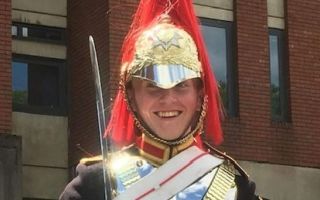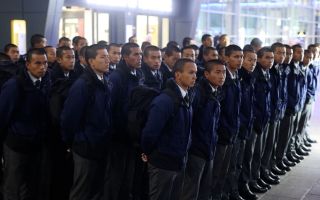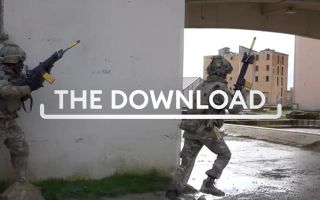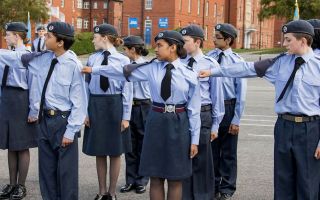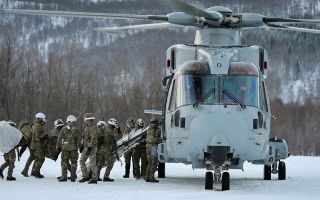Rent, food bank vouchers and therapy: How a military charity helped veteran back on his feet
How I Got Here is a new series from BFBS Forces News, focusing on the transition from the military to civvy street. We've spoken to veterans whose military careers have come to an end, either by choice or through a life-altering event. As people who have been there and done that, they offer invaluable advice for those considering leaving or who need some support right now.
Warning: This article discusses pregnancy loss and struggles with mental health. Some of the details in the article may be upsetting for some readers.
In 2011, Royal Navy Seamanship Specialist Adam Phillimore's life was turned upside down when his wife suffered a pregnancy loss.
The newly married couple had fallen pregnant quickly but, devastatingly, they lost the baby, and Mr Phillimore was desperate to be by his wife's side.
However, despite being on board ship alongside in Portsmouth and only 10 minutes from home, he wasn't allowed off the ship to be with her as he was on duty.
Speaking to BFBS Forces News for the How I Got Here series, Mr Phillimore explained how he was left feeling powerless, adding: "I thought, 'that's just not right'.
"I understand it's the military, but it just wasn't right, and I thought, I want to start a family and I want to be there for my kids growing up."
He decided then and there that he had to leave.
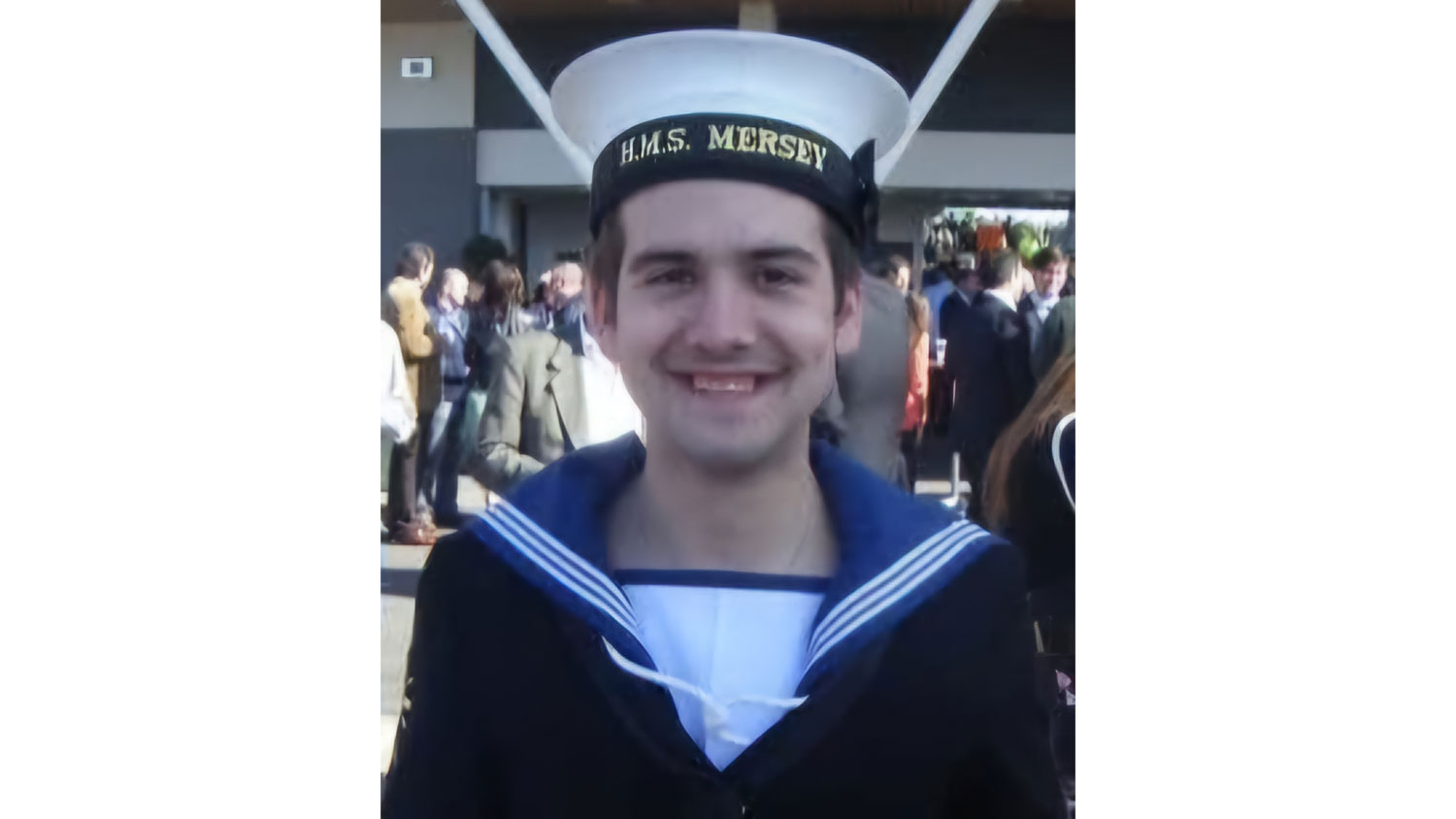
Don't call us, we'll call you
During his leaving medical it was discovered that, like his brother and sister, he had Type 1 diabetes, meaning he would have to inject himself with insulin for the rest of his life and change the way he ate.
And once again, his life was thrown into disarray.
Before being sent to Wales for adventurous training, Mr Phillimore explained he would need to go to hospital to get some insulin and, he says, that was the last time he set foot in a dockyard.
He said: "And because I was in the process of leaving already, there was no medical payout or anything like that.
"It was literally, 'see you later, don't call us, we'll call you'."
Left to his own devices, Mr Phillimore started a long period of his life where he would go from one job to another without feeling like he fitted in.
He said: "A lot of the sense of humour doesn't quite wash with civilians, and I was in trouble a lot in my first couple of years after leaving."
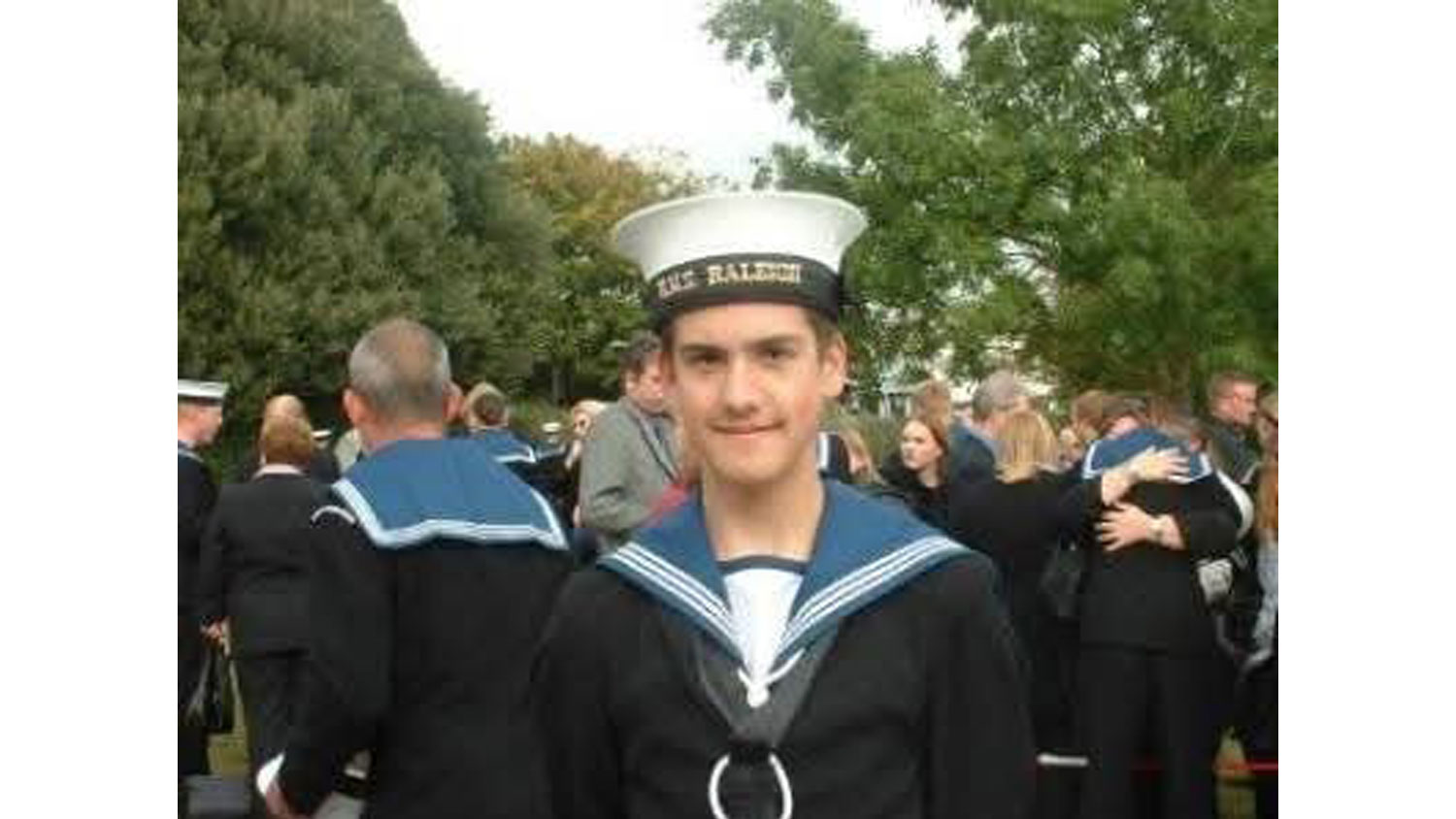
He joined the Royal Navy in 2003 when he was 16 and describes himself as having been institutionalised by the Senior Service.
And so, in 2012, when it was time to find work on civvy street, he found the shift between worlds a struggle.
He had served on vessels such as HMS Westminster, HMS Dunbarton Castle, HMS Mersey, HMS Severn and HMS Tyne and travelled the world, spending time in the Falklands, Brazil, India and Dubai.
Thanks to a job offer from a local painter and decorator, he was now working in civilian life, painting the same ship he had worked on just four weeks before – but that didn't last for long.
Despite wanting a civilian career building computers and taking a course offered by the military that, much to his disappointment, wasn't quite right, the jobs that followed were all in the customer service sector.
Some jobs were fulfilling but ended with redundancy, while others adversely affected his mental health, as call centre closures resulted in an unmanageable volume of calls.
The one constant was that he "never quite felt that I fitted anywhere I went".
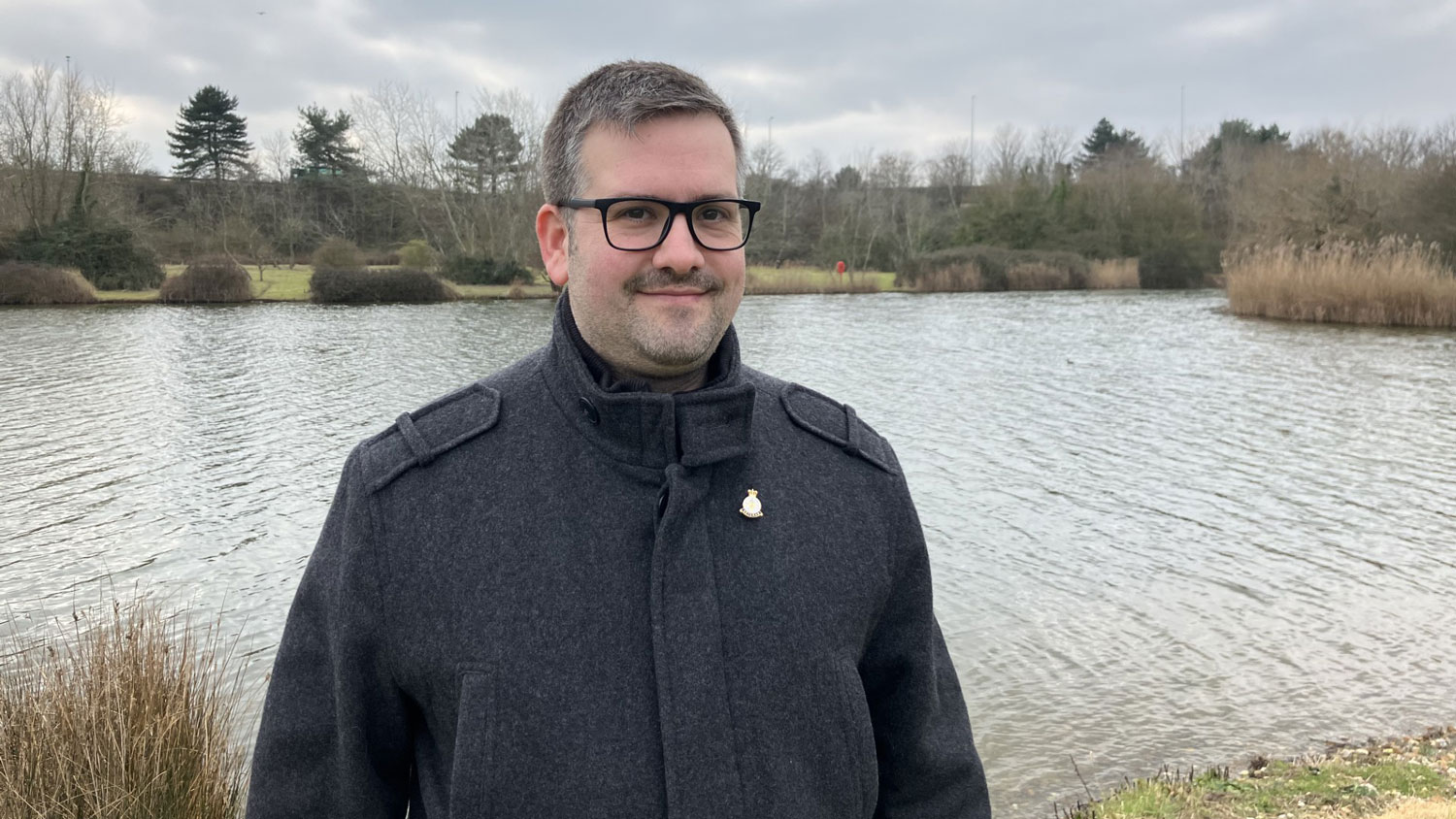
At rock bottom
It was during this time that his first marriage broke down and he had to move out of his family home, only seeing his children every other weekend.
Struggling to cope with bills and falling into the payday loan trap to survive, Mr Phillimore was drowning in debt and he was "in a really bad place" and things "got low".
This is when he sought help from the Royal British Legion, something he highly recommends others to do.
He says without the military charity's help he "probably wouldn't be here today" as he couldn't see a way out.
At one point, his debt had got so bad that he was unable to buy food for his children's visit, but thankfully, Susannah, the woman who is now his wife, paid for a food shop for him.
He said: "And then I knew she was the one."
Royal British Legion
The military charity known best for the Poppy Appeal got the Navy veteran food bank vouchers, introduced him to a specialist veteran's therapist and sat down with him to, once and for all, sort out his debt.
The only option was to declare bankruptcy, but there was a hurdle he had to overcome.
He didn't have the several hundred pounds needed to do it, so the Royal British Legion paid that and covered his rent for a month.
Mr Phillimore is proud to say that he is still debt free.
He said: "I was one of those people who thought the British Legion just did the Poppy Appeal and I never really classed myself as a veteran.
"It's only been in recent years since I've met my now wife, Susannah, that I'm actually proud of serving and what I've done."
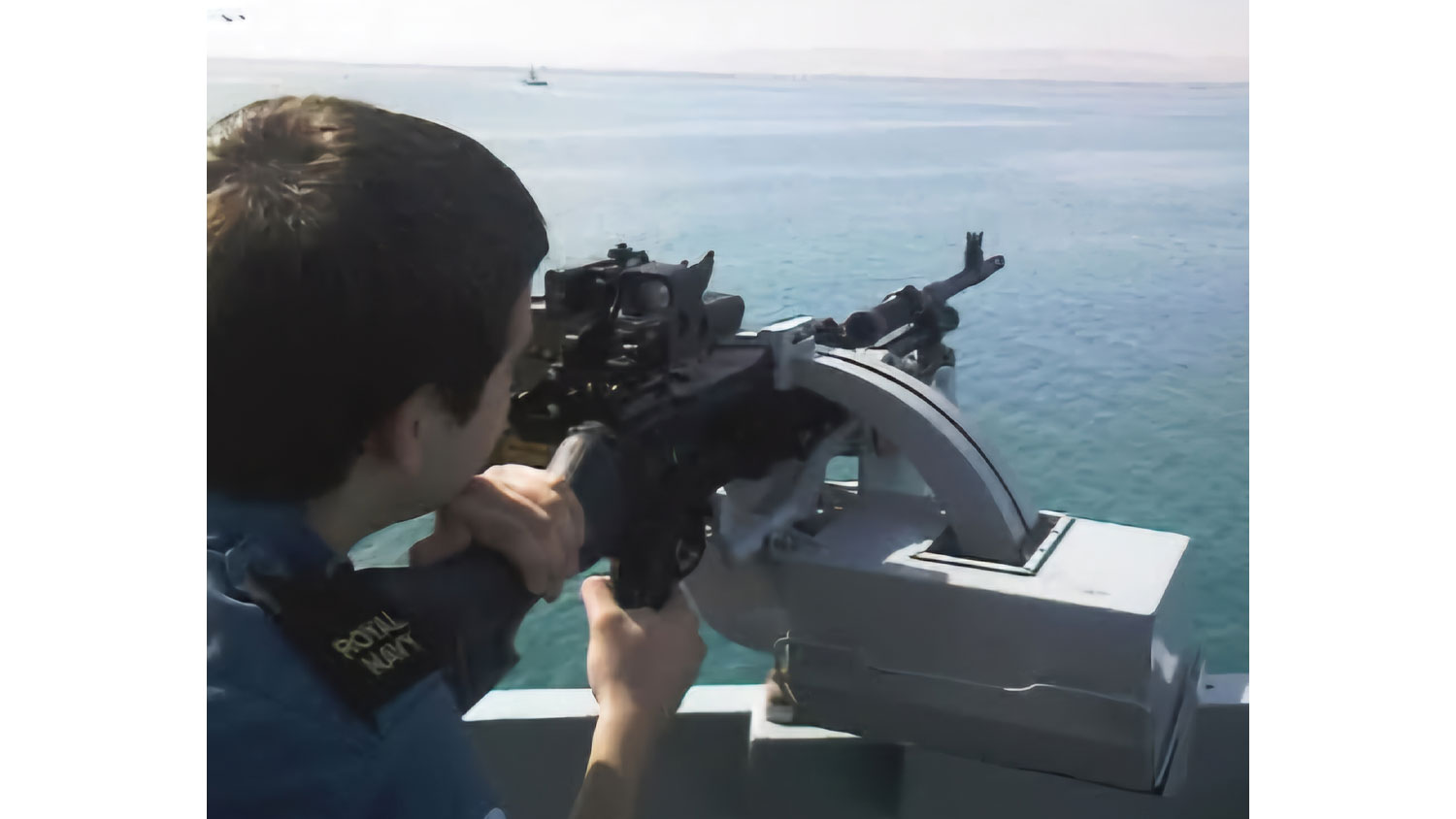
Job success
In stark contrast to his previous civilian work life, Mr Phillimore lights up when he talks about where he works now.
Today, he is a senior customer service advisor for recruitment company Total Jobs, but that's not all he does.
Keen to support fellow ex-service personnel, he set up a Veterans' Network, which has helped improve the working lives of veterans at the company.
He not only found a former Royal Navy chaplain to lead the annual office Remembrance service, but he also established an improved global policy for reservists.
Now, any reservist working for Total Jobs receives an additional 10 days of leave for their training – twice the amount they received previously.
He said: "We're improving the workplace for veterans and their families in order to not have the same issues that I did.
"We got our silver Armed Forces Covenant award this year, so we're on the road to gold."
Total Jobs also sponsored the Invictus Games in 2023 and 2025.
Reflecting on his journey from the Royal Navy to the present, Mr Phillimore wants people to understand that he is living proof that there is support available when you hit rock bottom.
"That's mainly the reason behind the drive at work to start the network and to build on that, because people don't know the support that's out there for them," he said.
"And there's a lot of people struggling, you hear about it all the time.
"They don't know where to turn but for veterans, there's the legion."

